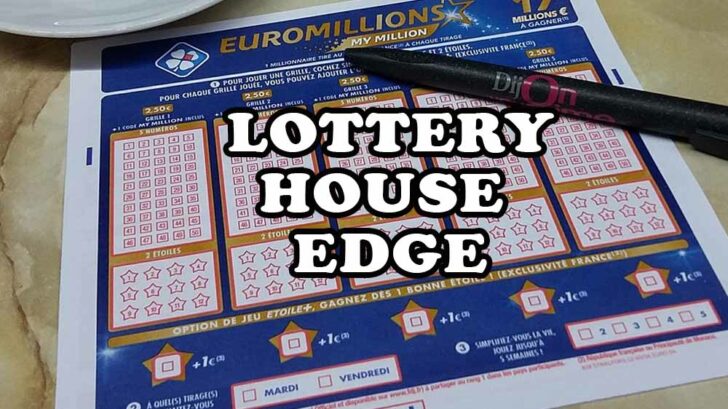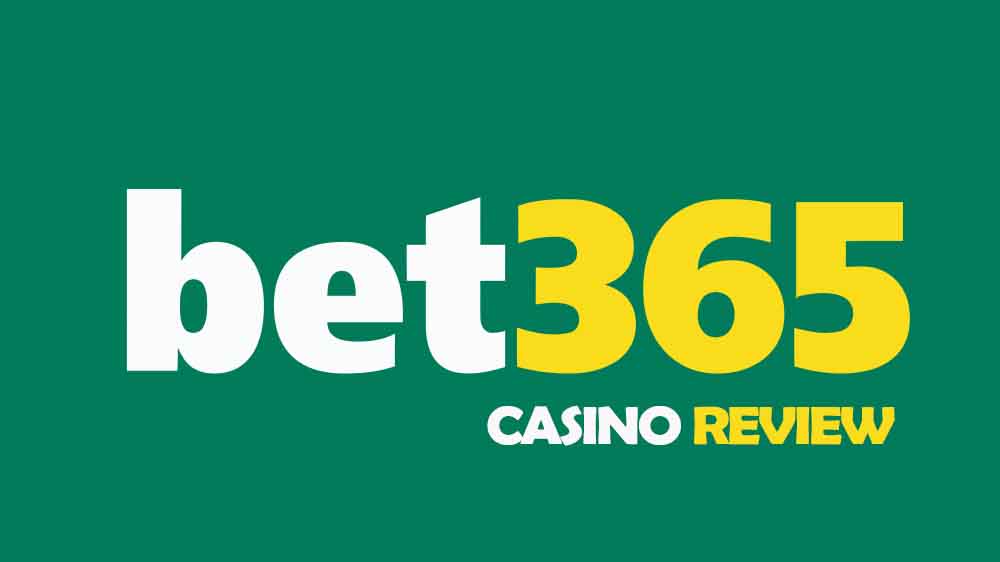How the Lottery House Edge Works

Introduction: How the Lottery House Edge Works
So how does the lottery house edge really work? If you’re a serious gambler then you’ll probably have a deep understanding of this house edge. Unfortunately for the customers, but fortunately for the casinos, most punters don’t care to know anything about it. In fact, most of the people who go to the casino go to play on the best jackpot slots machines. It’s super easy to play, with little demands on the player. You can park your butt on a stool, shove in the coins and even have a chat with your neighbor sitting next to you. These players have no idea or any desire to know anything about the house edge. If they did, they might not choose to play the game with one of the highest house edges in the whole casino.
Play EuroMillions online at theLotter without leaving your home!
The Return To Player Percentages
Many serious gamblers tend to stick to games where there is at least a tiny factor of skill. They can calculate the house edge with these games and are happy to play because they know that the casino’s take is more limited to table fees and rakes. Keep in mind that a 10% rake can be more profitable on a per-player basis than a slot with a theoretical Return To Player of 96%. But on the whole, most casinos, if not all, make the majority of their profits from the slots machines.
If you’re playing any jackpot games where your choices can affect the outcomes, then the house’s theoretical edge can differ from the real edge. Just to be clear, the theoretical edge is the difference between what the house expects to retain from the wagers and what the player actually wins back. To that end, a player making poor choices is going to improve the house’s advantage.
Do Lottery Games Work the Same Way?
Well, the answer is a mixed yes and no. For a start, all legal lotteries make money for those running them by design. So this means that some of the out-going monies will be held back. So to that extent, you call this a lottery house edge. Of course, it’s not computed in the same way that casino games are. Some casino games are kinda similar to lottery games. Roulette and craps spring to mind. But the house edge on these two games can vary hugely within each of these games. Lottery games are built around different principles. On the whole, there are three different types of lottery games.
There is the pick and draw games we all tune into on TV at the same time every week. Then there are the scratch games you buy from petrol stations and supermarkets. Finally, we have sweepstakes and second-chance drawings, where the player doesn’t have to pay in order to play.

What About Bingo?
The question is whether bingo is like a lottery game or is it a game of skill. Let’s have a look.
The players pay a flat fee per game (like a lottery)
Numbers are pulled randomly (like a lottery)
Players can use the same card or change cards (like a table game strategy)
Good players are skilled at scanning their cards for called numbers
There is a jackpot poker -like house edge in bingo.
The lottery house edge is not random. In fact, the house is always guaranteed a minimum percentage of wagers in lottery games.
The profits generated in a lottery are dependent on the number of people who play, as opposed to a percentage of the total wagers placed. This is down to the fact that lottery games have a lot more fixed costs than casino games.
Who Gets the Money in a Government-Run Lottery?
Now we’re starting to ask the important questions! If the games are run by governmental agencies, then you have the right to expect a fair and quick result, with all the accounting made transparent and clear. Unfortunately, bureaucracy is a cumbersome beast and it can take weeks or even months for all the results to be tallied up. Lotteries are very expensive to run, and can easily run into the millions of dollars for each state game. In 2016, an article published in Forbes noted that 50% of the revenue is paid out to the winners. A year later, CNN reported that the payout figure from lotteries was 63%.
So The Lottery Does have A House Edge
The takeaway is that punters can expect to see around a half or two-thirds of their monies to be paid back by other punters. So that means that the remaining 50% – 75% is the lottery house edge, even if you’re on the best lotteries to play. Of course, the percentages will vary from game to game. But the only thing that can change the lottery house edge is any unclaimed prizes. On another related point, you should keep in mind the truism, that though lottery jackpots can be progressive it doesn’t follow that progressive games are not lotteries. Everyone who has ever played the progressive slots machines will know that there’s a bonus prize or that the jackpot keeps growing after every player until some lucky customer wins it.

Thanks to the lottery draw, the progressive jackpot lotteries prize can only be won by a totally random chance. There is a difference from other casino games like slots or card games is that for the lottery you don’t have to do anything. Well, other than choosing your numbers and make the wager. They can even allow the lottery machine to pick the numbers for them. So the lottery draw is all focused on the jackpot prize. With other casino games, the progressive jackpot is an extra provided that the player wins in a certain manner.
Does the Lottery House Edge Affect Prize Awards?
Let’s start by looking at the casino game of blackjack. As you know, if the player draws an ace and a face card, and the dealer goes bust, then the punter is paid out at 3:2 odds. So, for every $10 the customer bets, the house pays out $15. Not bad, but it’s going to take some time before you can retire to your yacht in the Bahamas. And that’s because the table limits make it a small bettors game. Also keep in mind that if everyone draws an ace and a face card, then they are all paid out the same at 3:2 odds.
But in a game of lottery, things are rather different as each and every game has its own prize budget. That’s because the sums involved are determined by the number of ticket buyers. Likewise for the number of scratch tickets sold for that particular game. All the prizes come from the budget for that game and the punters who win don’t have to share their prize with anyone. But in a lottery draw, if the same number comes up twice or more, then the winners will have to share. If there are any unclaimed prizes, that that only serves to give a better deal for the state, but these events are very unpredictable.
The Probability of Winning Doesn’t Change
When it comes to a state-run lottery, then there’s no maximum payout. We can all read about these massive sums being awarded to lucky winners. Any prizes not won in a draw, then rolls over to the next, thereby increasing the total payout for the next draw. Keep in mind that in a true lottery draw, the probability of winning doesn’t change. That’s because the players have exactly the same options week after week. But on the other hand, the jackpot will keep growing until someone pulls a winning ticket. And all the while, the lottery company is taking it’s cut as a fixed percentage of actual ticket sales. It’s of no consequence as to how many tickets are in use, the percentage taken remains exactly the same.

The Lottery House Edge Is Inflexible
This is a point worth remembering. As is the fact there is absolutely no correlation between the lottery house edge and the size of the prize. Another factor is that lottery games have a tenancy to group all chances of winning together. So, for example, on the back of a scratch card, it’ll say something like “chances of winning: 1 in 4”. Casinos often do the same with their slots machines. But these aggregated estimates are only of use up to a certain point. After all, you’re much more likely to lose ten games in a row at a 1:6 win ratio, than in a 1:4 ratio. At the end of the day, the most important fact is just how many prizes remain to be won.
If you’re a scratch card lottery player, then you’ll probably check how many unclaimed prizes are still in the game. It’s only logical that they will favor a game with the most unclaimed prizes. Though if this is your style, you should still take note that some percentage of these unclaimed prizes might have already been claimed. You’ll also notice that scratch game customers like to purchase even more tickets after the main draw has taken place as part of their jackpot winning strategy. Though the big win is over, they still have hopes of winning something.
Conclusion: How the Lottery House Edge Works
So, to sum up what we learned. First thing first, the more people who buy lottery tickets then the more profitable the game becomes. But if we compare casino games to lotteries, you need far fewer players for the house edge to make the same profits. That’s because any casinos also rely on the losses from the biggest players, or whales, in order to make up for their losses in smaller games.
Because lottery games are both cheap and easy to play, requiring only minimal input from the player, they are available in many more places than where you’ll find a casino. Of course, the appeal of having a huge win in the lottery spurs buyers into action. Thus making the whole exercise very profitable for the house. Finally, we should mention that the lottery house edge is much more predictable and steady than that found when playing games at the casino.
Play Powerball online at theLotter without leaving your home!














